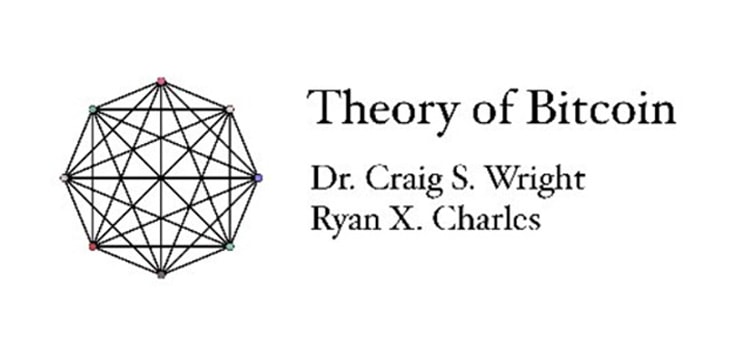|
Getting your Trinity Audio player ready...
|
“Theory of Bitcoin”, the series of video discussions between Dr. Craig S. Wright and Money Button’s Ryan X. Charles, is continuing. This time around it takes some of the concepts the pair discussed earlier, and delves into more complex issues. It’s still vital watching for anyone in the Bitcoin industry—it’s not important to understand everything, but anyone who watches it will come away with something new.
The continuation of this series (or second series, if you prefer) breaks Bitcoin down into two areas of study: “Bit” which looks at its technological aspects, and “Coin” which looks at the monetary side of things. Charles and Wright are starting with “Bit,” and so the first episode of the series is an overview of the way information flows through Bitcoin transactions.
How can the technology and business world be convinced?
Charles explains that part of his personal goal in undertaking this series is to “influence Silicon Valley.” He notes that the concept of “provable computation” would be useful to a lot of businesses—it’s something Bitcoin provides but which the world outside Bitcoin is only just beginning to grasp. We say “just beginning to” because it’s such a nascent concept, even many in the Bitcoin world may struggle to explain it (and its benefits). “On the blockchain” might have been a buzz phrase for a few years now, but it has far more use-cases than those who use it really understand.
Watching these videos, therefore, puts you at the cutting edge of understanding these benefits. Charles has structured his education carefully and is allowing viewers to benefit from it too.
A list of those Charles would like to educate includes Google, Uber, Intel, VISA, Wells Fargo, the Federal Reserve of San Francisco and the Santa Clara County administration. Dr. Wright shows some disdain for large tech companies, saying Google—for all its accumulated technological prowess—hasn’t figured out a way to make money other than through advertising.
The discussion moves onto an interesting history of why and how Bitcoin grew from its conceptual stages into what we see today.
Charles asks Dr. Wright why Bitcoin Script isn’t mentioned in the 2008 whitepaper, since it now seems so integral to processes built on Bitcoin. Wright explains that the original whitepaper was deliberately brief and conceptual, an alpha explanation of the base protocol “just to make sure the thing worked,” and that its other more complex aspects were explored later. The white paper defines the ledger, using accounting terms and explaining Bitcoin in fewer than 10 pages.
“When I said I was leaving to do other things… it was all those other things,” Dr. Wright says.
Bitcoin was originally conceived from an accounting perspective, thanks to Dr. Wright’s experience in auditing and accounting data forensics. How do you make a company’s accounts auditable, yet keep them private? How do you make it so anyone can prove they paid their taxes, without knowing details like how much?
That’s what Bitcoin does, and that’s why it’s important it stays that way. Attempt to make transactions completely untraceable and the system breaks down, add more users and it becomes more private. This is a topic that doesn’t get discussed much.
It also came from his anti-malware research conducted when he worked in the gambling industry, at Centrebet. Ironically, some of the techniques used by botnets to layer and protect their networks inspired Bitcoin’s structure (albeit one that, unlike botnets, leaves an audit trail).
But accounting isn’t just audit, or the past, Dr. Wright points out. It’s also about planning for the future. You’ll need that aspect of Bitcoin too.
Information Theory, Probability Theory, and how Bitcoin could unify
The conversation heads into more esoteric (for some) territory as Charles and Wright begin talking about astrophysics and information theory. For the record, Ryan X. Charles was an astrophysicist before joining the Bitcoin industry, and sees plenty of parallels.
“Information is a probability distribution,” Charles says, and explains ways he sees Information Theory linking to Bayesian Probability Theory. “I believe entropy is actually a measure of uncertainty.”
“We can start connecting all these different disciplines together, actually, with information. I come at this from the perspective of physics, and in physics we care about unifying things. The idea of unifying theories is a good idea.”
Don’t worry if you’re not, like most people, an astrophysicist—or a mathematician, economist, or anything in particular. Though some parts of the conversation may be hard to grasp, Dr. Wright has ways of tying it back to real-world examples to show how the Bitcoin ledger and its structure can solve problems.
As he explains, your ownership of a plot of land isn’t outright ownership of that land. It’s the information surrounding it, such as its borders and surroundings, alterations, ways you intend to use it, how you have used it, etc. You’re creating something new, and that something is based on information that’s connected to that block of land. It’s something intangible, perhaps only in people’s minds—and yet it exists, it has value, and it affects physical outcomes.
All this gives you an idea of where the “Bit” part of the new “Theory of Bitcoin” series is heading. The first episode certainly goes into more scientific depth than the previous, but it’s still just as fascinating. Even if you don’t understand everything about Bitcoin by the end of it, you’ll certainly understand it a lot more.
To watch previous episodes of the Theory of Bitcoin, check the Theory of Bitcoin YouTube playlist here.

 02-19-2026
02-19-2026 




